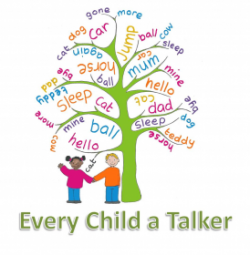
Every Child A Talker
What is ECAT?
ECAT is designed to promote early language development, in settings and at home, through every day activities that interest your child. It supports practitioners and parents to develop and extend children’s vocabulary so that they may become confident and skillful communications.
Shalfleet ‘Little Explorers’ is your local ECAT setting and staff are trained to ensure they are providing a developmentally appropriate, supportive and stimulating environment where children can enjoy experimenting with and learning language. We ensure that every child has the opportunity to become an effective communicator.
Why is language development important?
Language forms the foundations for interacting with other people, for communicating our needs, our thoughts and our experiences.
From the moment of birth babies are ready to communicate, they listen to and look at things in their environment and respond to what they hear and see. Even the youngest babies need a stimulating environment in which those who care for them respond sensitively to the different meanings of their cries, coos and gestures. This early ability to communicate verbally and non-verbally is the basis on which language is developed.
A child’s ability to develop language depends on being immersed in a rich environment of words, sounds, rhythm and verbal and non-verbal expression from birth.
How can you support your child?
- Encourage your child to communicate using words, actions and gestures.
- Be patient, listen carefully to your child, let him finish and take turns to speak.
- Give your child plenty of time to think about what you have said and respond.
- Always respond to your child whatever they talk about.
- Don’t correct your child but model back to them how things should be said, that way they know they have been understood and can hear how the words should sound.
- Use your child’s name at the beginning of what you are saying to gain their attention.
- Listen to and copy the different noises your hear such as cars, animals or the telephone, this will interest your child in sounds and help them understand that sounds have meaning.
- Extend what your child can say, for example, if they say ‘car’ you could say ‘blue car’.
- Enjoy stories, songs and rhymes with your child using actions and objects to give meaning to words.

